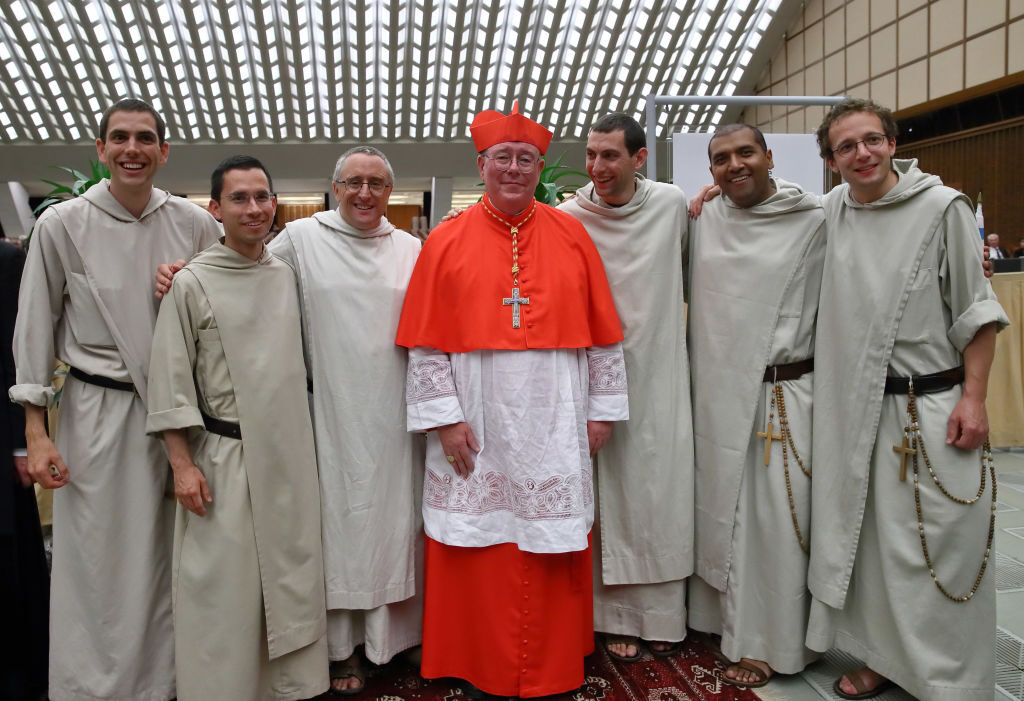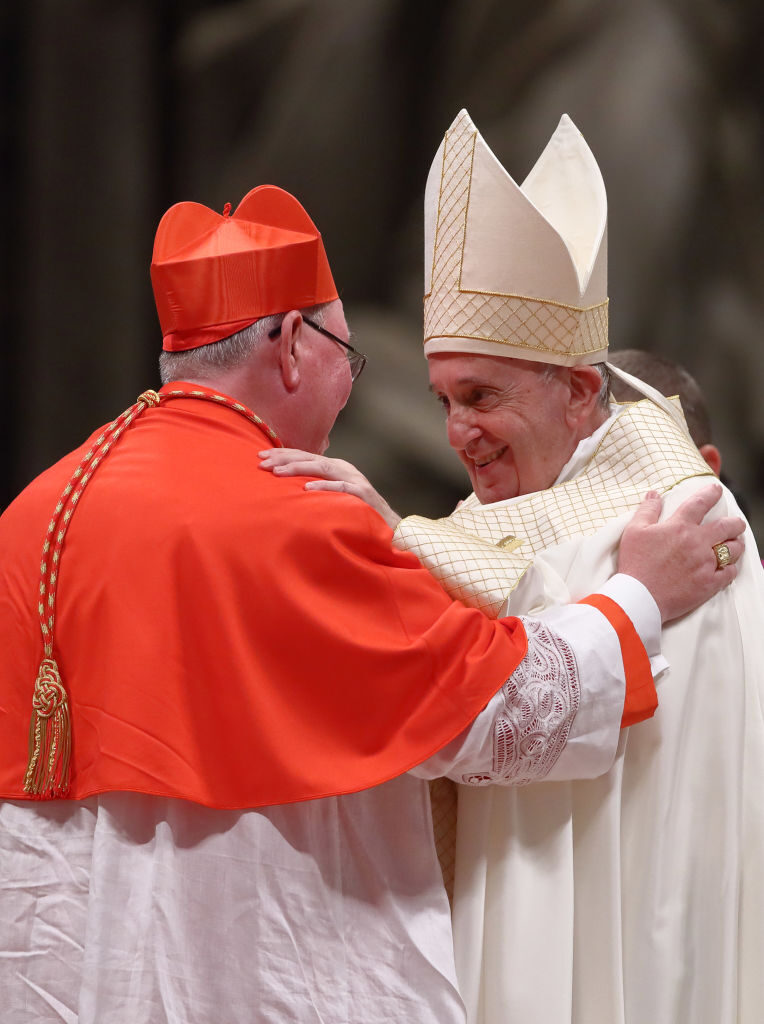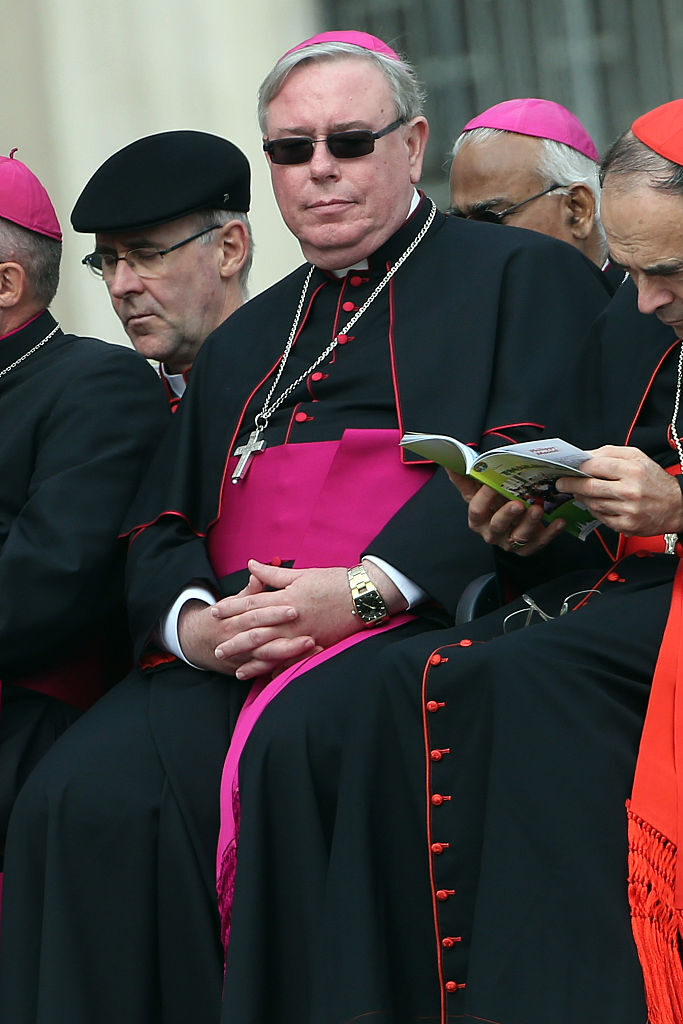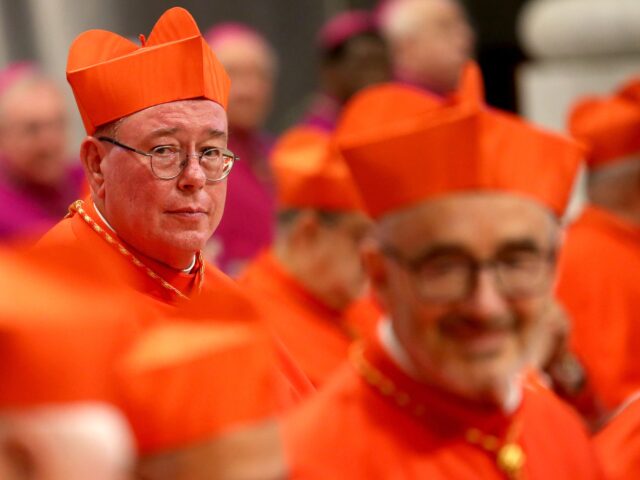ROME — Pope Francis has named progressive Luxembourg Cardinal Jean-Claude Hollerich to his inner cabinet of advisors despite the cardinal’s rejection of key elements of Catholic moral teaching.
Vatican News noted Tuesday that Pope Francis has rebooted his Council of Cardinals, or “C9” as it is known, which was created to assist the pope in the governance of the universal Church. The new Council retains four of its previous members and adds an additional five, including Cardinal Hollerich, a Jesuit like the pope.
In February 2022, Hollerich, who is also president of the European Bishops’ Commission (COMECE), said that Catholic teaching on the sinfulness of homosexual relations is mistaken and needs to be updated.
“I believe that the sociological-scientific foundation of this teaching is no longer correct,” Hollerich said, while calling for a fundamental revision of the Church’s position.
For its part, the Catholic Church teaches that same-sex attraction is “is objectively disordered.”
“Basing itself on Sacred Scripture, which presents homosexual acts as acts of grave depravity, tradition has always declared that ‘homosexual acts are intrinsically disordered,’” states the Catholic Catechism, adding that under no circumstances “can they be approved.”

Pope Francis presides in the Vatican Basilica the Ordinary public consistory for the creation of 13new cardinals. In the photo Luxembourg cardinal Jean-Claude Hollerich. (Grzegorz Galazka/Mondadori Portfolio via Getty Images)
Immediately following Hollerich’s comments, German Cardinal Gerhard Müller, the former head of the Vatican’s doctrinal office (CDF), blasted the Luxembourgian prelate, suggesting he is “secularized,” wishing to keep the name “Catholic” but unwilling to accept “the teaching of the word of God.”
“They relativize the Catholic faith, but remain with their titles: cardinals, bishops, theology professors — but in reality they don’t believe what the Church is saying,” he said in regard to Hollerich and his ilk.
The problem is that they are “materialists,” Müller said, who base their opinions not on creation and divine revelation but on pseudo-sciences.
The LGBT agenda that many of them support “is totally idiotic because its Neo-Gnostic mythology is absolutely against human nature, not only in a biological sense, but also in a philosophical one,” the cardinal added.
Despite Hollerich’s well-known heterodox views on homosexuality, in 2021 Pope Francis appointed the 64-year-old cardinal archbishop of Luxembourg to be the “relator general” of the Church’s “Synod on Synodality,” a move that drew sharp criticism from the late Australian Cardinal George Pell.
Hollerich, Pell wrote in a posthumous essay published in January, “has publicly rejected the basic teachings of the Church on sexuality, on the grounds that they contradict modern science,” something that in ordinary times would have precluded him from continuing as “Relator” of the synod.
The synods will have to decide whether they are “servants and defenders of the apostolic tradition on faith and morals” or sovereign masters tasked with reinventing Catholic teaching, Pell asserted.
Prior to his statements on homosexuality (which he has since repeated), Cardinal Hollerich was mostly known for his support for globalism, free-flowing immigration, and Europe’s Green New Deal, positions that line up well with Pope Francis’ priorities.
In 2020, Hollerich called on Europeans to fight the “virus” of nationalism in order to preserve the European Union.

Pope Francis presides in the Vatican Basilica the Ordinary with Luxembourg cardinal Jean-Claude Hollerich. (Grzegorz Galazka/Mondadori Portfolio via Getty Images)
“Let us do battle with the coronavirus and do battle with the virus of nationalism and selfishness,” he told the Vatican newspaper L’Osservatore Romano.
Solidarity “does not stop at the borders of Europe,” he asserted. “We have problems with borders: borders in Europe and borders of the European Union with other countries. There are people who die on the borders of the European Union and we cannot tolerate this.”
Not long before, the cardinal had said that the political inaction on the Mediterranean migrant crisis was due to “fear of right-wing parties.”
“I find it outrageous that we’re letting people drown in the Mediterranean; that our hearts have become so hard; that politics no longer dares to act for fear of right-wing parties,” Hollerich said.
The cardinal also argued that many of those migrating are being forced out of their countries by climate change.
In the age of global warming, Hollerich declared, there is a new form of migrants who are no longer “economic refugees” but “climate refugees,” escaping the effects of extreme weather.
A vocal ecological activist, the cardinal has insisted that climate change is one of the most important issues faced by the Church today.

File/The Archbishop of Luxembourg Jean-Claude Hollerich attends Pope Francis’ weekly public audience in St. Peter’s Square on October 29, 2014 in Vatican City, Vatican. (Franco Origlia/Getty Images)
“If our planet is destroyed, we can shout as much as we want about married priests or women priests, but there will be no priests needed anymore,” Hollerich said in an interview with the Jesuit-run America magazine.
Again in 2020, Hollerich said he welcomed “the Commission’s proposal to integrate the European Green Deal as an underpinning strategy into the recovery plan” from the coronavirus, and called upon EU member states “to translate their pledges towards climate neutrality and the care for the environment into tangible actions that will spur ecological conversion in Europe.”
In declaring his belief that climate change is the most urgent problem facing humanity, Hollerich has said that he buys fair-trade coffee instead of Nespresso, no longer uses plastic bottles, and has changed his diesel car for a hybrid one.
“We bishops have to change our lifestyle, and if we older people succeed in doing it, then the younger ones can do it too,” he said. “But if I cannot change my own lifestyle, how can I say to young people to do so?”

COMMENTS
Please let us know if you're having issues with commenting.